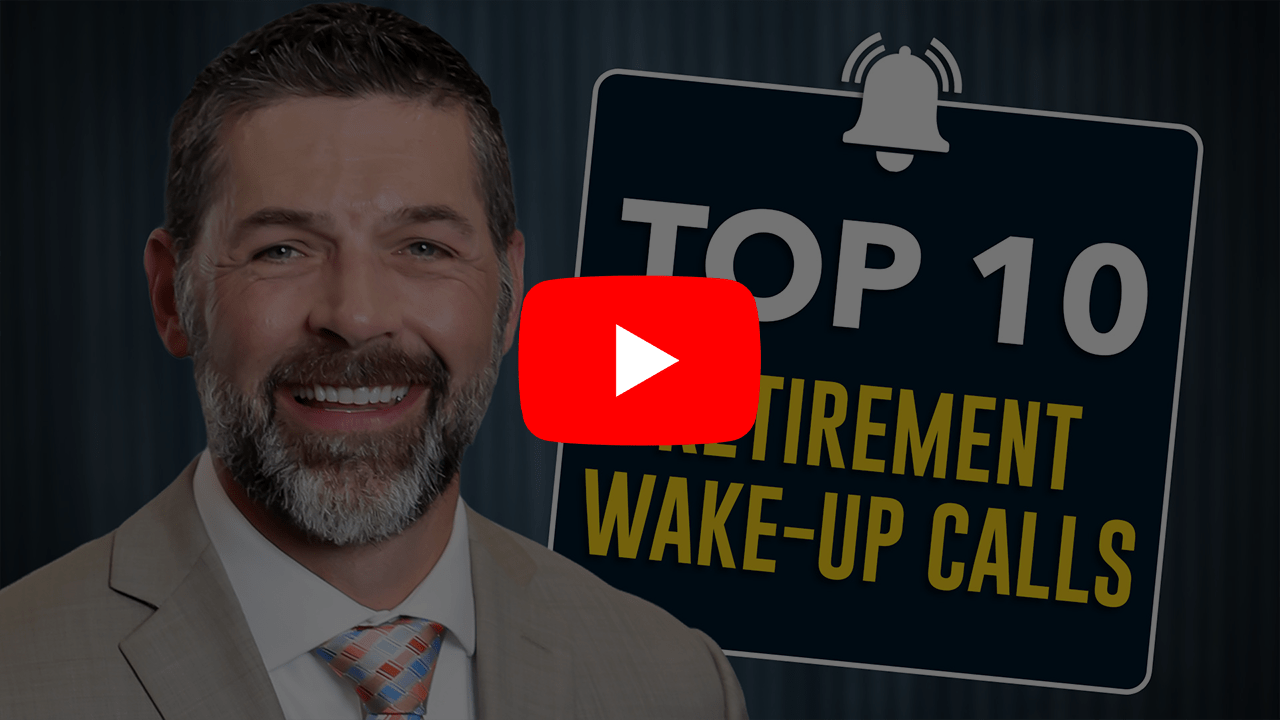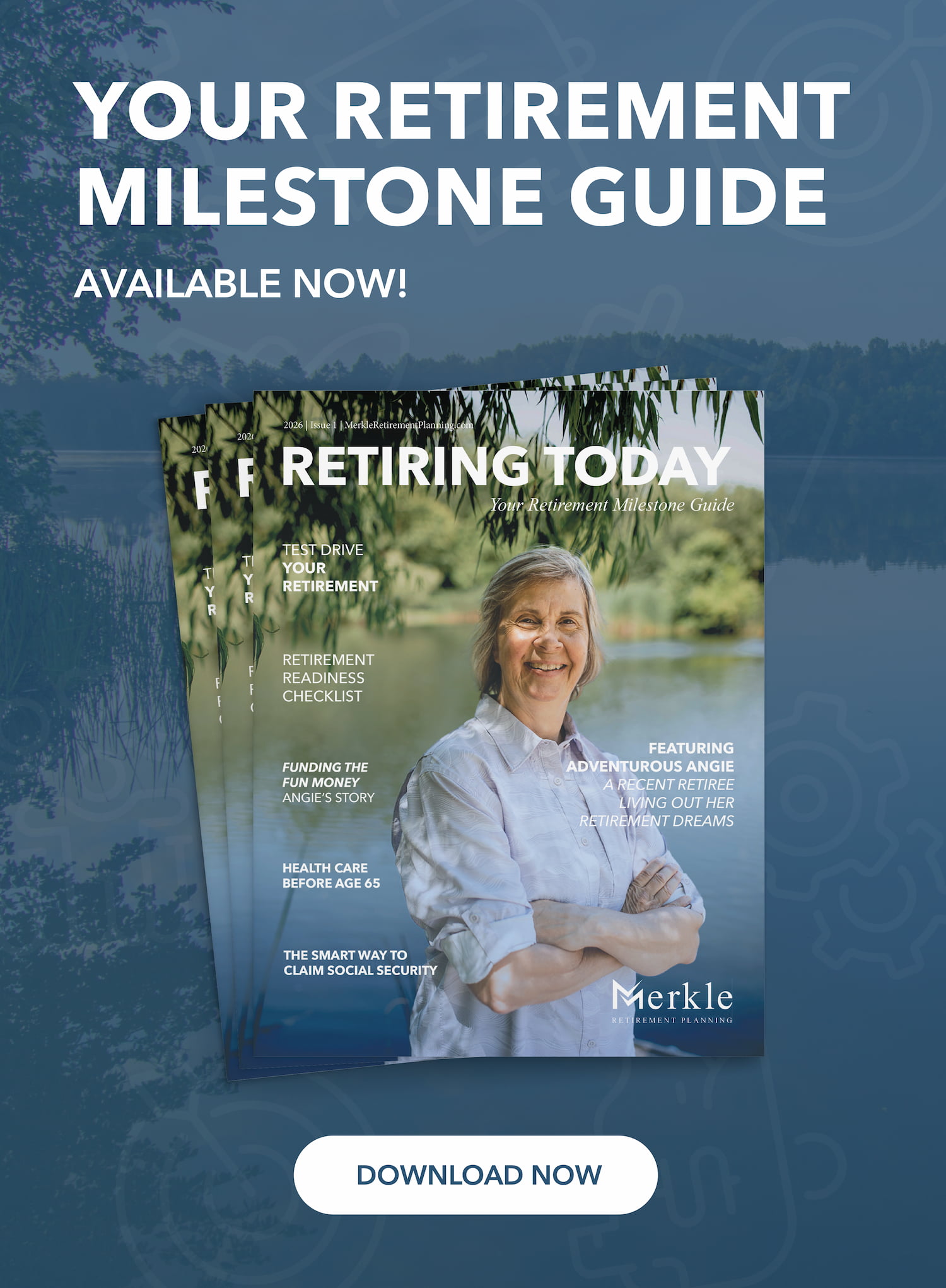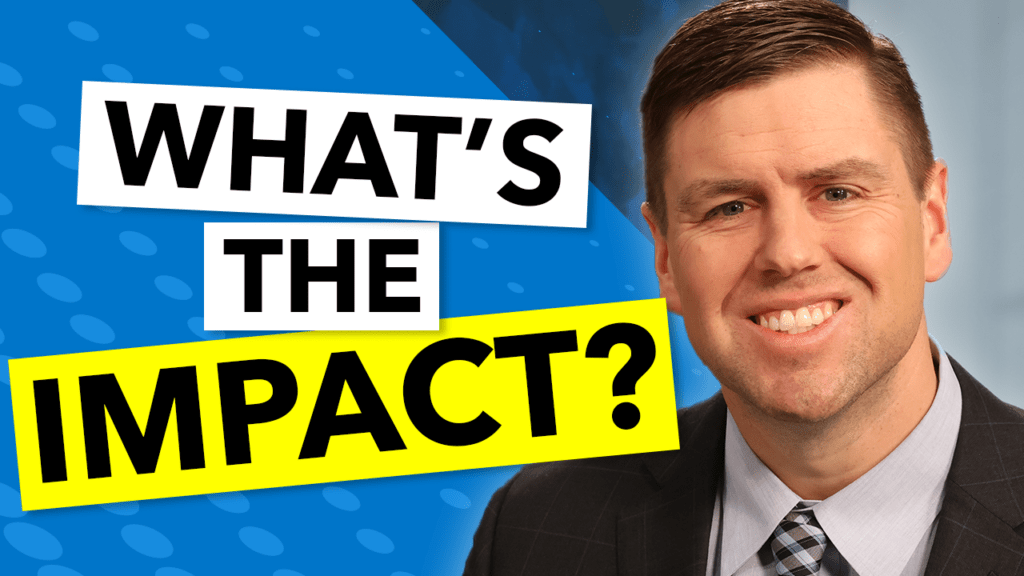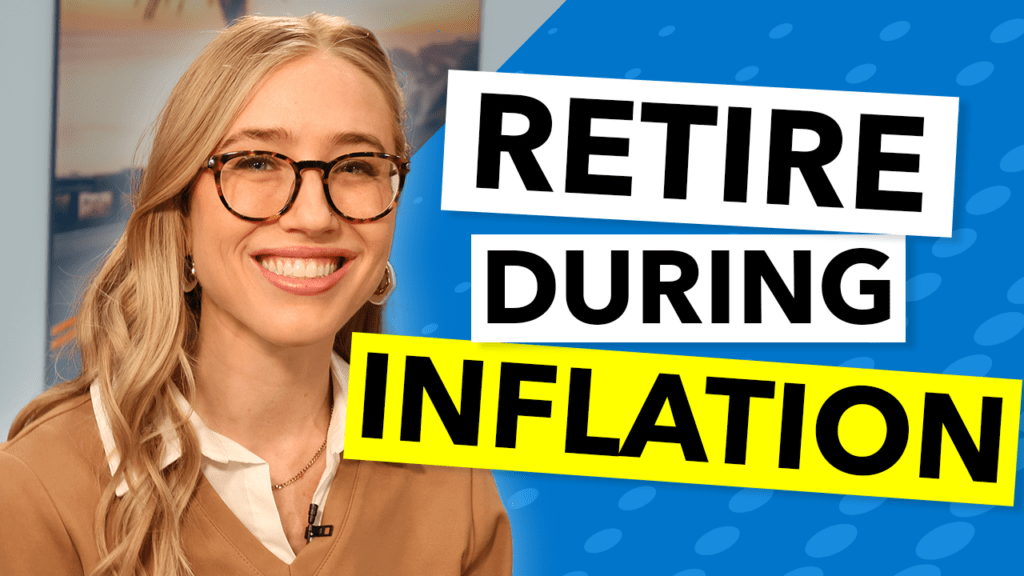Retirement may bring dreams of sandy beaches, golf outings, and more time with family—but it also comes with surprises that can catch many off guard. In a recent episode of Retiring Today, Loren Merkle and Chawn Honkomp counted down the top 10 retirement wake-up calls. These “uh-oh moments” highlight the realities retirees face and the importance of planning ahead.
Wake-Up Call #10: Your Money Doesn’t Know You’re Retired
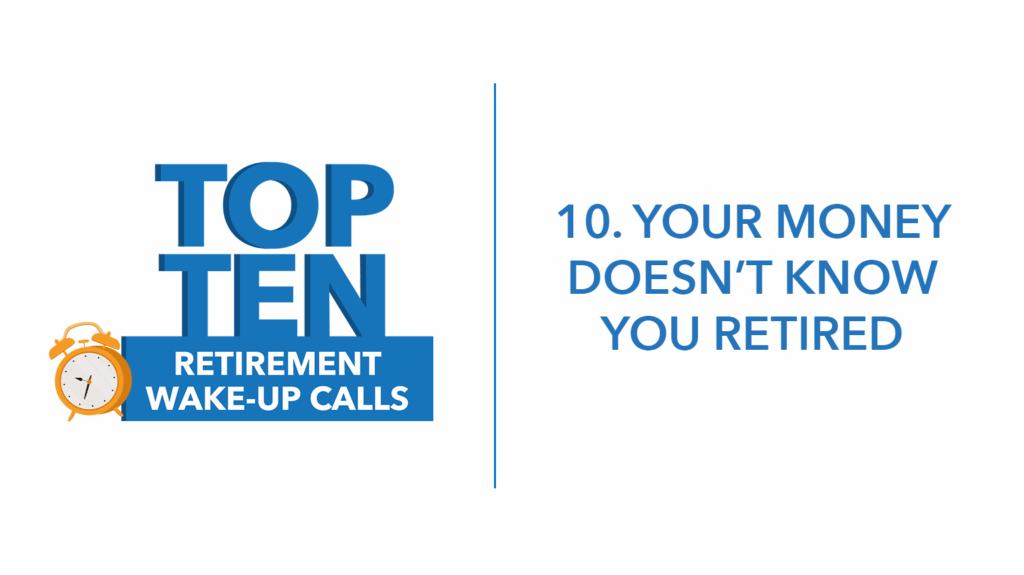
The market keeps moving—whether you’re working or not.
Many people assume their investments will “settle down” once they retire, but the stock market doesn’t recognize milestones like birthdays or retirement parties. As Chawn explained, “Your money doesn’t know you’ve hit this new stage of life… the markets are going to keep doing their thing.”
That means retirees still face market volatility, only now without the comfort of a steady paycheck. Loren pointed out that the key is integrating your investments with a well-structured income plan: “You need to have control mechanisms around your portfolio to help create strategies to support the income you may need to enjoy the retirement that you’ve been dreaming of.”
Wake-Up Call #9: Medicare Isn’t Magic

Coverage gaps can be expensive—long-term care, dental, and vision aren’t included.
Many pre-retirees are surprised to learn that Medicare doesn’t cover all health expenses. While it provides a foundation, it won’t pay for some of the most significant costs you may face.
“Long-term care is at the top of that list,” Loren said. “You can’t think that Medicare is going to cover the $10,000 a month if you need some long-term care assistance.”
Medicare also doesn’t cover routine dental and vision care unless you add supplemental plans. Knowing what’s excluded—and planning for those gaps—can help retirees avoid surprises.
Wake-Up Call #8: Retirement Accounts Come with a Tax Bill
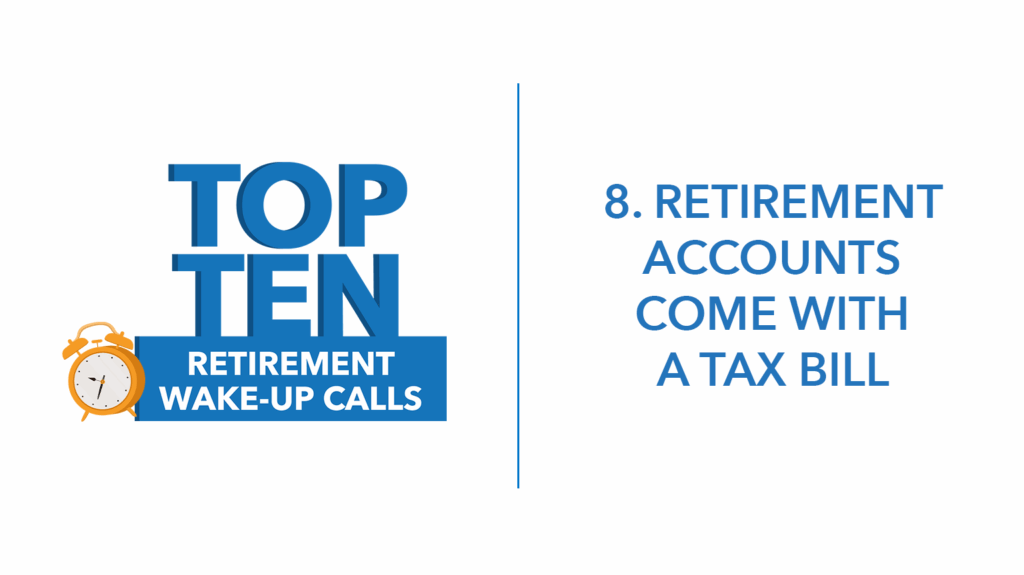
That million-dollar nest egg may be closer to $700,000 after taxes.
For decades, most workers have saved inside tax-deferred accounts like 401(k)s and traditional IRAs. Those accounts grow without tax while you’re working—but the IRS collects when you start withdrawing funds in retirement.
Chawn reminded viewers, “Unfortunately, one of the gifts of retirement is not that the IRS is no longer going to want to tax you.”
That can be eye-opening for someone with a $1 million portfolio. As Loren explained, “In reality you do not have a million dollars… for many people over the course of their retirement it turns into something like $700,000.”
The good news? With careful tax planning—such as Roth conversions or balancing pre-tax and after-tax savings—you may be able to keep more of what you’ve earned.
Wake-Up Call #7: The Grandkids Are Cute But Pricey

Disney cruises, diapers, and gifts all add up fast.
Retirement often means more time with grandchildren, but it can also mean more spending. From birthday gifts to family vacations, these costs should be part of your financial plan.
Loren shared the story of a widow who brightened her retirement years by taking her three grandchildren on a Disney cruise. “That experience is priceless,” he said, “however, to Disney, there is a big price tag.”
Planning for “super grandparent” moments like these helps you spoil the grandkids without spoiling your retirement budget.
Wake-Up Call #6: The No-Plan Plan Is Still a Plan
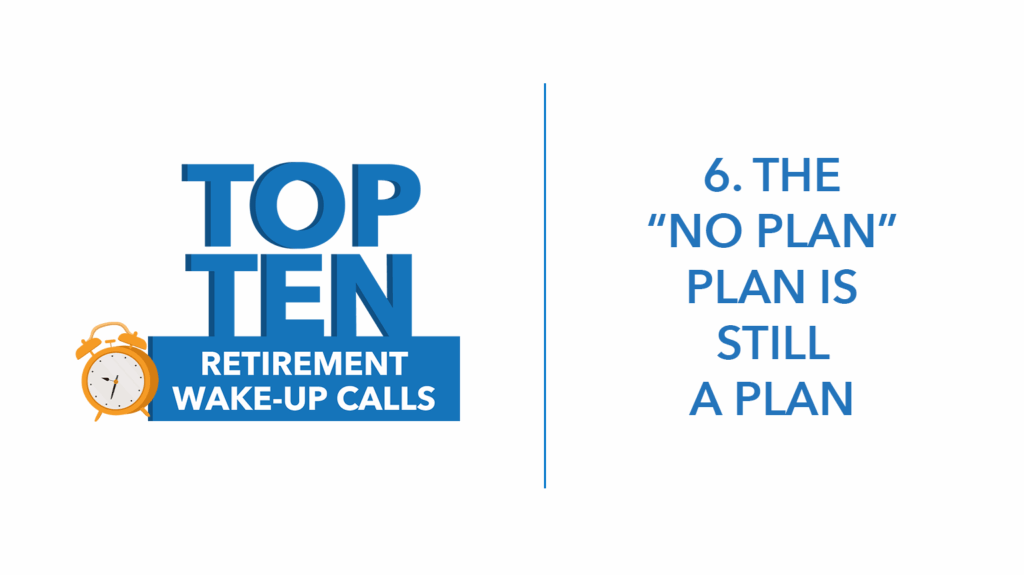
Doing nothing still has consequences.
Some people think they’ll just “figure it out” once retirement arrives. But delaying decisions is still a choice, and it often leads to missed opportunities.
Chawn explained, “Not planning for it, not making any decisions. The decisions are going to get made one way or another.”
A no-plan approach can mean higher taxes, less income, or reduced flexibility later in life. As Loren noted, the complexity of retirement planning—Social Security strategies, health care coverage, and income withdrawals—often overwhelms people, leaving them uncertain about the next steps. Recognizing that inaction is itself a plan is the first step toward building one that actually works in your favor.
Wake-Up Call #5: Retirement Lasts Longer Than You Think

A 20- to 25-year retirement is common—sometimes longer.
Many people envision retirement as 10 or 15 years, but with life expectancies rising and retirement ages trending earlier, it often lasts two decades or more.
“Not only do they live a little bit longer, but also they’re retiring a little bit earlier,” Loren said. “So, you’re talking about potentially a 20-to-25-year retirement time horizon.”
This longevity brings opportunities—but also risks. Inflation, market downturns, and higher health care costs are more likely to impact you the longer you live.
Wake-Up Call #4: Your Emotions Make Lousy Financial Advisors

Fear and greed can derail your long-term plan.
Markets rise and fall, sometimes dramatically. When the headlines scream, it’s tempting to react emotionally—selling during downturns or chasing hot investments during rallies.
Chawn stressed, “It’s really hard for you to remove your emotion from your money.”
That’s why having a disciplined strategy matters. Historically, many of the market’s best days happen shortly after its worst days. Pulling out at the wrong time can mean missing out on critical recovery growth. Removing emotion from financial decisions can help you make the most out of your investments.
Wake-Up Call #3: The Rules Changed While You Were Working
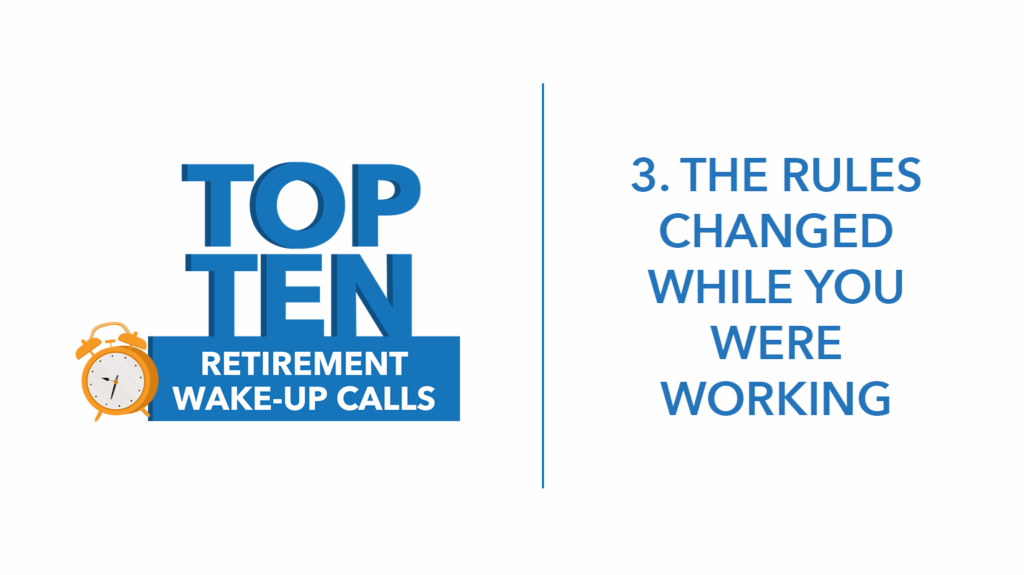
Retirement laws shift—RMD ages, penalties, and tax rules keep evolving.
The retirement system is built on rules, but those rules rarely stay the same. One of the biggest examples is required minimum distributions (RMDs).
“Almost every rule changes at some point in time,” Loren said. He explained how the RMD age stayed at 70½ for decades, then jumped to 72 in 2019, and more recently shifted again—73 for some, 75 for others. Penalties for missing withdrawals have also changed, from 50% down to 25% and possibly 10%.
Keeping up with these changes—and understanding how they apply to you—is essential. What was true when you first started saving for retirement may not be true when you retire.
Wake-Up Call #2: Your Neighbor Bob Is Not a Retirement Planner

What worked for Bob won’t necessarily work for you.
It’s natural to compare yourself with friends or neighbors, especially when it comes to retirement decisions like claiming Social Security. But every household’s situation is different.
Loren cautioned, “We hear it all the time. Bob told me I need to take my Social Security as soon as I possibly can, at age 62 for a litany of reasons.” What’s right for Bob might not be right for you. Loren suggests making your Social Security decisions based on your retirement vision and how it fits within a comprehensive retirement plan.
The right strategy may result in significantly more lifetime benefits compared to a neighbor’s approach. Trust your plan, not Bob’s opinion.
Wake-Up Call #1: It’s Not About the Money; It’s About the Life You Want
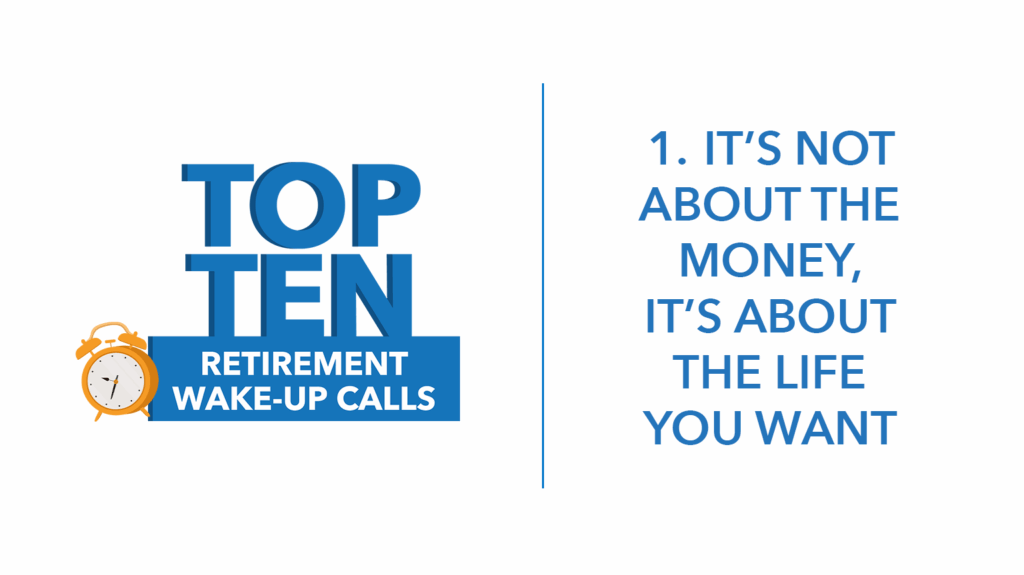
The true goal is a retirement lifestyle that brings joy and meaning.
When most people picture retirement, they don’t think about tax brackets or portfolio withdrawals—they think about travel, hobbies, and time with family. Yet too often, lifestyle gets overlooked as part of the planning process.
Chawn summed it up: “Nobody out there has ever told us that they want to retire more than once… So it is, it’s about the lifestyle.”
Loren agreed, “Some people…might be watching the show and they’re saying, are you guys kidding me? We watched the top 10 list of wake-up calls, and number one was a non-financial topic.
What are you guys talking about? And this is the reason it’s number one, because it is the most important.”
Retirement isn’t just about the money. It’s about what that money allows you to do—and how you design the years ahead to create the life you truly want.
The Bottom Line
Retirement is filled with possibilities, but it also comes with surprises that can throw your retirement vision off course. From market swings and rising health care costs to unexpected taxes and emotional decision-making, the wake-up calls are real—but they don’t have to derail your future.
The earlier you recognize these wake-up calls, the more time you have to prepare. With the right strategies, retirement can potentially include fewer surprises and more time spent doing what matters most to you.
Watch the full episode on YouTube to learn more about the these “oh moments” the realities retirees face and the importance of planning ahead.
